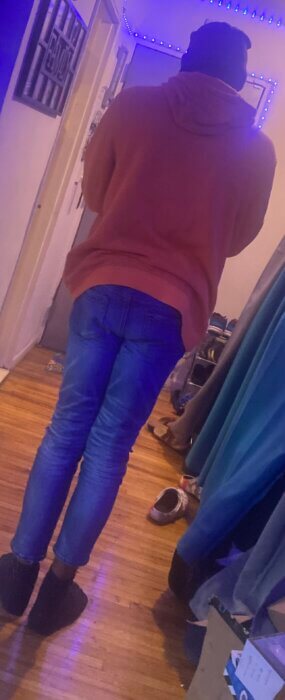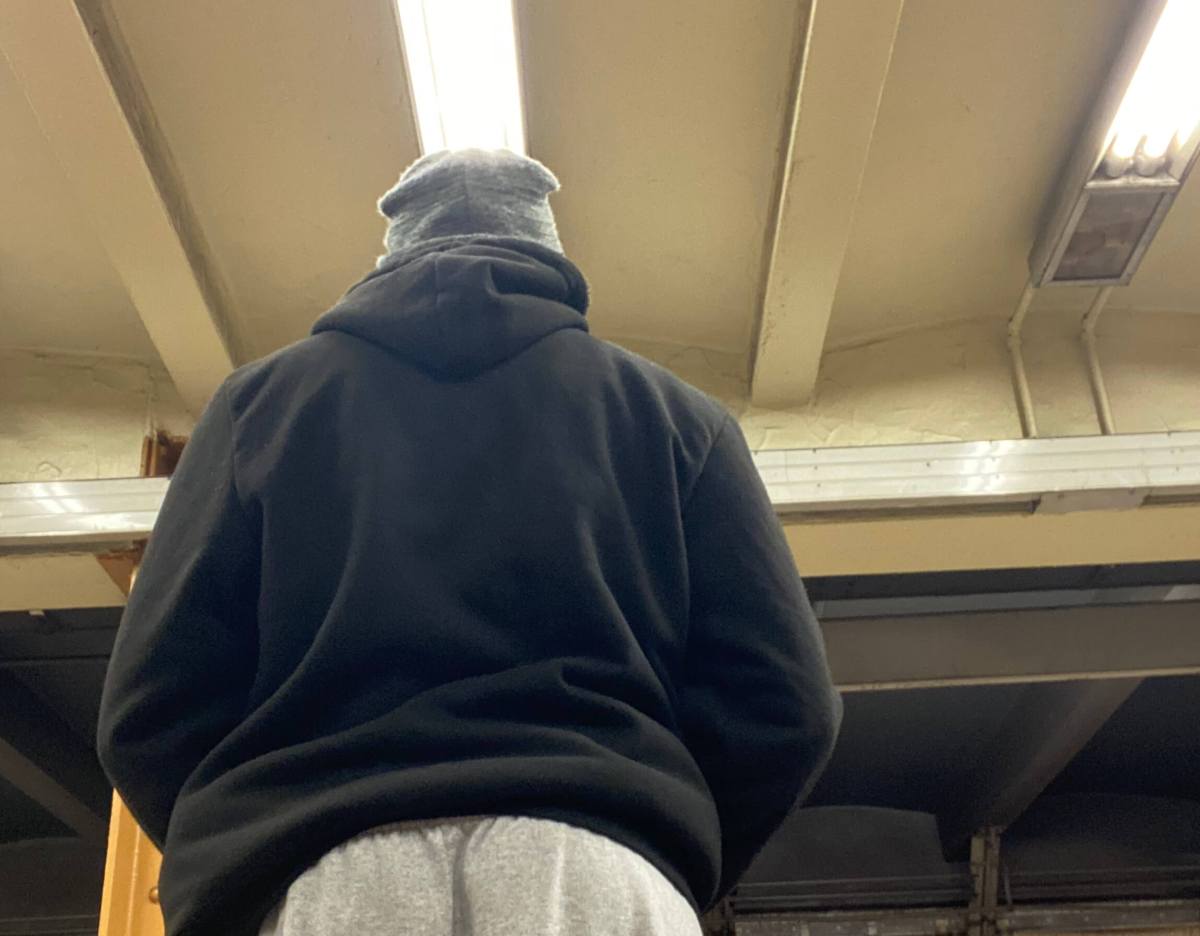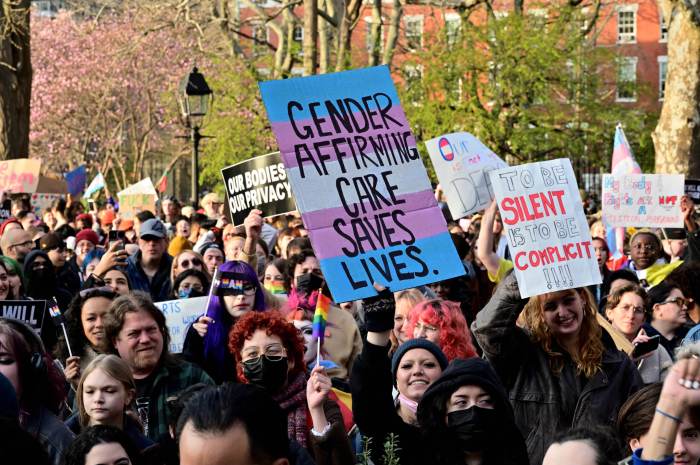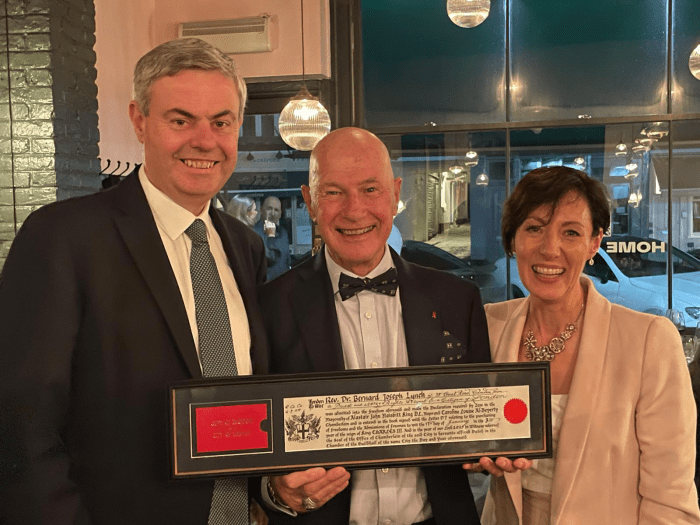A gay man who experienced rampant homophobia in his home country of Jamaica embarked on an arduous, months-long journey last year to seek asylum in United States, passing through multiple countries along the way before finally landing in New York City.
However, Murvin — whose surname is being withheld for privacy reasons due to threats and his ongoing asylum case — is now confronting myriad challenges: He has been residing in a hostile shelter environment where he says anti-LGBTQ remarks by staff members and other residents are commonplace, and he will soon be forced out of his temporary home due to government policies limiting stays at shelters in New York City.
Murvin is now at a crossroads, unable to determine where he is going next or whether the US government will even extend his stay. In many ways, it seems, his circumstances are just as dire as when he left Jamaica; he is required to be out of his shelter in a matter of days.
Speaking with Gay City News in an exclusive interview, Murvin elaborated on his current condition, recalled his experience in Jamaica, and detailed his risky journey to America.
“Mind-draining, traumatizing”
“In Jamaica, you have to hide,” Murvin explained. “You have to be in a shell.”

Murvin, 33, said his life in Jamaica was “terrible” and that he was “verbally, physically, and mentally attacked numerous times” due to his sexuality.
“It was mind-draining, traumatizing,” he said. “Prior to leaving Jamaica, I was receiving death threats.”
While many other Caribbean nations have gradually repealed anti-LGBTQ policies, Jamaica still has laws criminalizing same-sex activity. The Rainbow Railroad — a Canadian charitable organization helping LGBTQ people escape violence — tallied 411 incidents of anti-LGBTQ violence in Jamaica last year, up from 377 in 2021.
Murvin took matters into his own hands last year when he decided to flee his country for America. He decided against traveling straight to Mexico from Jamaica out of fear of being turned back, so he first flew to Panama. He then traveled north until he reached Belize and then Mexico.
“It was very hectic and scary because I went through a swamp to get to a boat to get across to Mexico,” said Murvin, who added that others were also on the boat. “There was somebody there directing us.”
From there, Murvin traveled to Cancun and subsequently boarded a plane for the United States.
When he finally arrived, Murvin said he twice tried to apply for a visa, but his requests were denied. He initially tried staying with some family members in America, but that was short-lived.
“That did not work because they wanted to move all the time,” Murvin said. “I told them I didn’t come here for that. When I refused to do what they wanted me to do, they told me I couldn’t stay.”
Murvin’s mother and sister have been in touch with him from afar — the only family he has left in his corner — but they remain back in Jamaica, and his brother will not speak to him.
Despite his uncertain future, Murvin is still glad to be in America and hopes to remain here for the future. He attended Pride festivities this past summer for the first time in his life.
“For me, here you can be more free,” he said. “You can be yourself.”
Homophobia at Home
Murvin settled into his current shelter near the Navy Yard in Brooklyn over the summer. But the shelter has not been the safe haven Murvin sought when he made his way to America.
“The shelter is not LGBTQ friendly,” he explained. “It is homophobic. Most of the workers — not all of them — are very disrespectful. They call us names.”
One night, Murvin recalled, he was returning home to the shelter when he noticed a gay couple from El Salvador in the building.
“At the entrance, [staff members] were having a conversation about the LGBTQ couple and they were saying, ‘Those are faggots,’” Murvin said. “I was standing there shaking my head. That’s not cool.”
Murvin believes staffers are under the impression that they can freely speak their mind without repercussions because they assume nobody can speak English.
“There was one incident when there was a supervisor who didn’t know I speak English,” Murvin said. “He said, ‘Motherf***ers, get off the elevator.’ My response to him was, ‘Who do you think you’re talking to?’ We are people, not animals.”
Murvin said he asked to be relocated due to the hostile environment, but was told he could not be moved unless he faced physical harm. Regardless, though, he will be required to move out soon — and on short notice.
Uprooted
Murvin shared a 60-day eviction notice he received from the city on Aug. 30 informing him that he must move out by Oct. 29 at 8:51 a.m.
“Thousands of asylum seekers have come to New York City over the last year and shelter space is limited,” the notice stated. The brief note adds that Murvin “may not be able to stay at this location” beyond Oct. 29 and that the city can “help facilitate your one-way travel to another destination.”
Yet, the notice offered no concrete solutions for residents with nowhere to go. The original notice directed Murvin to go to the Roosevelt Hotel and apply for another housing assistance option, “which could include a faith or community-based organization or placement in a hotel in upstate New York,” the note said. But then he received a follow-up message sending him to a different location.
In early October, Mayor Eric Adams sought permission from a judge to temporarily suspend the right-to-shelter policy that has been in place in New York City for four decades. The Adams administration has moved to limit shelter stays for asylum seekers to 60 days for families with children and 30 days for single adults, and the limitations have been in place at shelters operated by the Departments of Emergency Management, Health + Hospitals, and the Department of Housing Preservation and Development, according to AMNY, which reported that the administration plans to extend the cap on single adults to Department of Homeless Services (DHS) facilities.
Murvin said his shelter is operated by DHS, but that detail could not be independently verified.
Murvin is concerned that another housing option may not be available during what will likely be a very crowded reapplication process, and a case worker recently told him his next placement would only be for 30 days. He is receiving support from Immigration Equality, which advocates for and represents people in the immigration system who are LGBTQ and living with HIV.
Kristen Thompson, Immigration Equality’s communications director, expressed frustration about the Adams administration’s handling of the migrant crisis and Murvin’s case.
“New York City is legally bound to provide safety and shelter to asylum seekers like Murvin,” Thompson told Gay City News. “It’s reprehensible to deny him and other LGBTQ refugees the basic dignity of having a bed to sleep in at night. Instead of stoking fear against people fleeing persecution, Mayor Adams would do well to recommit himself to his own vision: building ‘a city that inspires and welcomes all the world.’”
A spokesperson for the mayor did not respond to a request for comment on Oct. 26.
Waiting game
Complicating things further, Murvin’s immigration hearing is not until next year — and he has no idea what his future holds. He has plans to meet with an immigration attorney soon, he said.
“While doing that, I’m basically waiting patiently for my work authorization,” he said, adding that he “would like to start on my education.”
Murvin dreams of working somewhere in a nursing-related field, he said, but he is unable to move forward until he receives approval to do so.
“I don’t limit myself to anything,” he said.

































